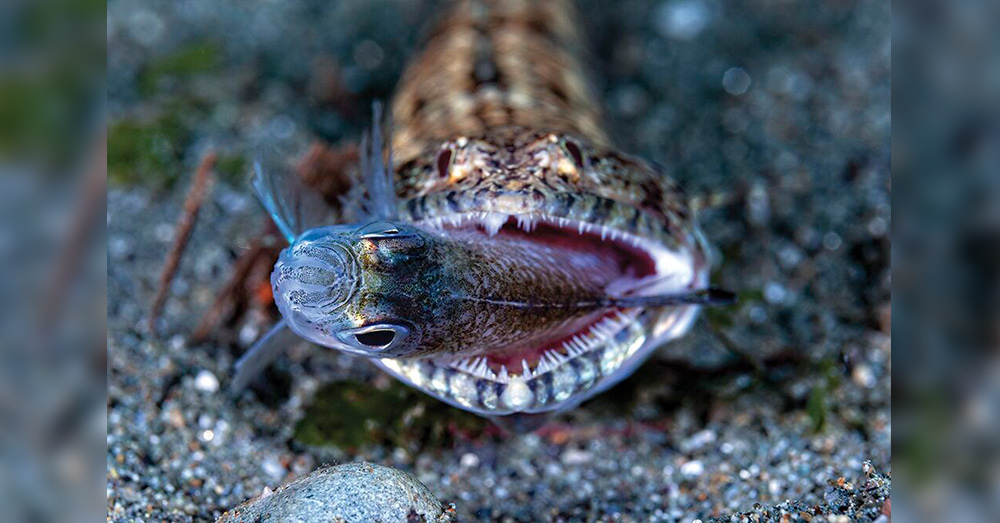
Diver Catches Award Winning Shot After Hearing ‘Whale Shark, Right Behind You!’
“Whale shark, right behind you!”
Those were the last words Evans Baudin heard before capturing an award-winning photo of a 40-foot beast.
Baudin was diving off the coast of Baja California, Mexico, with a special permit. He intended to study how marine wildlife behaviors had changed as COVID-related restrictions reduced shipping traffic.
“After two hours in the water with a school of silky sharks near the surface, our boat captain yelled, ‘Whale shark, right behind you!'” Baudin said.

“Whale shark, right behind you!”
The whale shark approached with its mouth open wide, giving Baudin a once-in-a-lifetime view of a unique symbiotic relationship.
“The surprise was twofold when I discovered about 50 remoras peacefully enjoying a free ride in her mouth!” he said.
Baudin’s photo won the grand prize in Scuba Diving Magazine’s 2020 Through Your Lens underwater photography contest, It was chosen out of a total 2,636 entries.

This photo of a seahorse took first place in the contest.
As National Geographic reports, whale sharks are the largest fish in the sea, often measuring more than 40 feet in length. Thankfully for Baudin, they are also more interested in eating plankton than they are people. Opening its massive jaws, the whale shark ingests millions of plankton at a time by filtering the organisms through its intricate gills.

A lizardfish with a damselfish in its mouth, by Jerry Arriaga.
“Preferring warm waters, whale sharks populate all tropical seas,” NatGeo reports. “They are known to migrate every spring to the continental shelf of the central west coast of Australia. The coral spawning of the area’s Ningaloo Reef provides the whale shark with an abundant supply of plankton.”

Third Place in the contest’s “Behavior” category went to Thomas Van Puymbroeck.
As large as they may be, whale sharks are also rare, and durrently classified by the IUCN Red List has classified whale sharks as endangered since 2016. The greatest threats to the survival of whale sharks are energy production and mining, transportation and service corridors, biological resource use, and human intrusions and disturbance. They are also hunted in waters around Asia, most commonly near the Philippines.